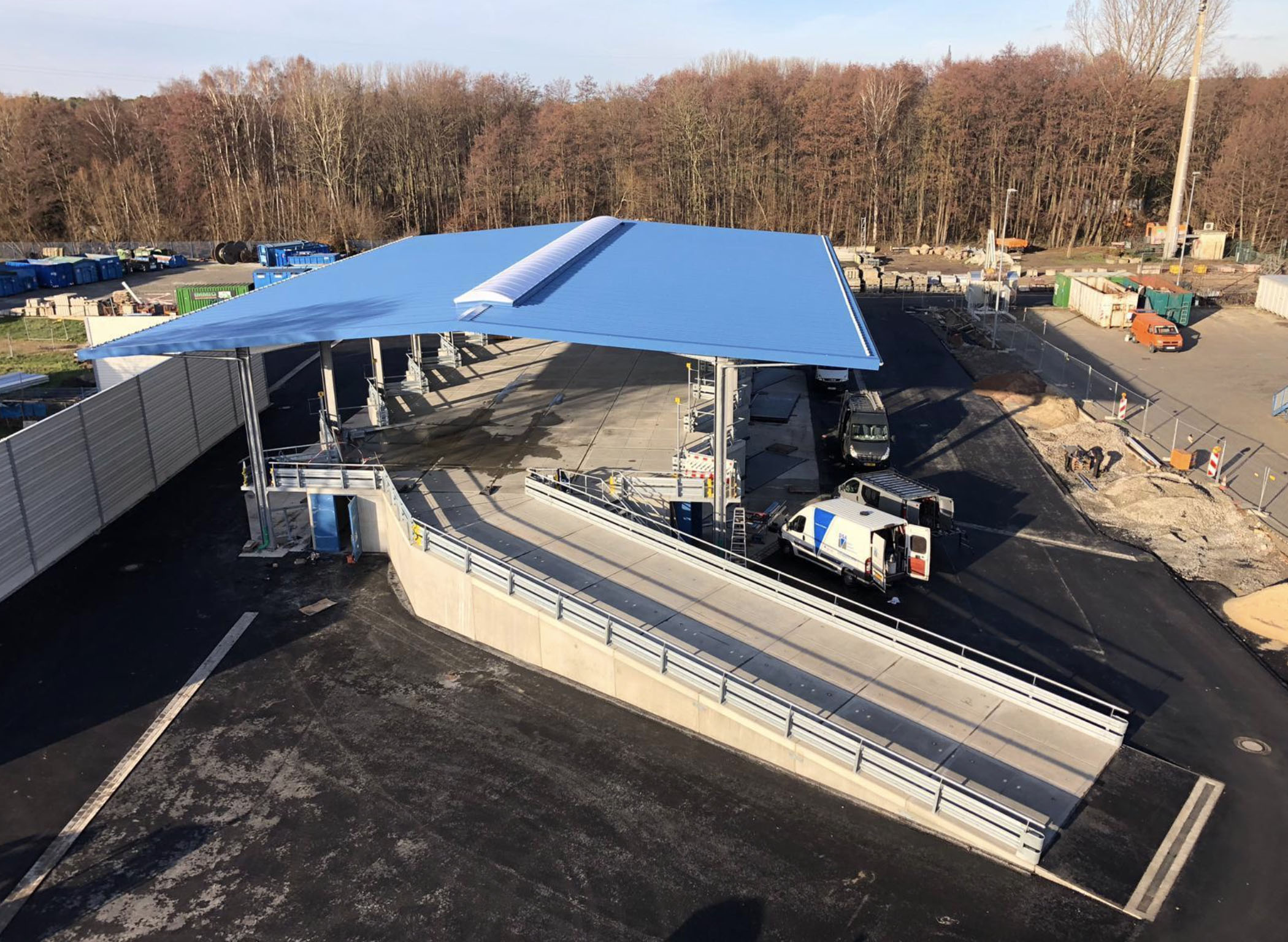Residential drop off Solution Paderborn Germany
Modulo recently completed its new residential and small businesses drop off solution/ recycling center for Paderborn Germany. Immediately after installation, residents started to use the facility. Modulo was involved from start to finish as well as maintenance. Modulo provided consultancy
Household Hazardous Waste Recycling Site Geleen, The Nethherlands
The Municipality of Sittard-Geleen was seeking a total concept solution to deal with its HHW. Before it decided to build a permanent Household Hazardous Waste facility, HHW was collected through event days and through the use of Household Hazardous Waste collection vehicles. Sittard-Geleen
Hazardous Waste Solution Galten, Denmark
Modulo has successfully completed the hazardous waste solutions at Galten Recycling Site, Reno Syd, Denmark. The modules ensure compliance with regulations and ensure safe storage of hazardous waste, facilitating to separate storage for the different hazardous waste classes. The solution includes
Convenience Center, Woerden, The Netherlands
Woerden, The Netherlands recycling site has heat traced ramps and facilitates offices, storage, reuse, and HHW underneath the deck. The site is in compliance with all European Regulations (Guidelines for Environmental Protection Measures and Chemical Waste Storage, National and International
Lemmer The Netherlands
The ecocentre in Lemmer, in the municipality of De Fryske Marren, has been officially opened. Alderman Irona Groeneveld performed the opening operation by throwing bulky household waste in one of the containers (photo above, ed.). It did not take long



